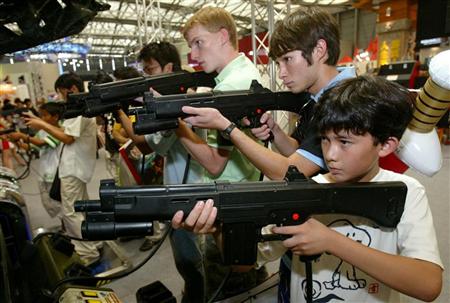Back in the eighties, during the height of the ‘satanic panic’, mothers across the nation turned a collective disdainful stare towards heavy metal and Dungeons and Dragons, both blamed for depravity, decadence and increases in violence. During the Nineties it was the turn of rap music and violent movies. This decade, it’s videogames. During the past few years, voices against games have simmered down a bit but it seems that with every violent release a dwindling chorus raises concerns. Several times, game violence risked becoming a wedge issue during elections and in the case of Australia it actually did, prompting a nationwide ban on some games.
In fact, some studies seem to suggest that in persons undergoing periods of high stress, like students undergoing finals could actually benefit from violent video games. A Massachusetts study undertaken in a clinical environment has indicated that after playing Grand Theft Auto 4, one of the premier targets of violent-gaming hate from the media, all subjects experienced a decreased rate of aggressiveness. The game, therefore served as way to release built-up aggression, an outlet of sorts for frustration and tension.
All this seems quite reasonable considering the way the human mind works. Despite millions of years of evolution we are still ‘wired’ like a stone-age predator. We are confrontational and irate beings by nature and we tent to store all the repressed anger in us when we don’t get to express it. Rock music and video games help release that aggression and frustration just as well as Beethoven and chamomile tea.
The issue of violence and video games seems a silly one in retrospect. In a country that values individuality and freedom in which a large part of the population claims that people, not guns are responsible for violence it is a crying shame that so many societal ills are piled on pieces of software. Instead of scapegoating violence on games we could be searching around for the true causes of violence and malcontent and finding ways to fix them.

